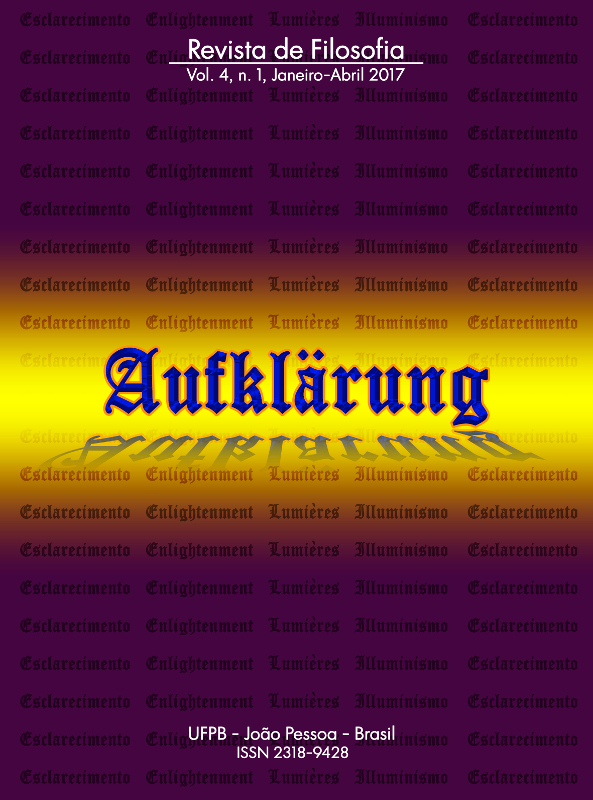Reasoning, logic, and category mistakes
DOI:
https://doi.org/10.18012/arf.2016.32457Keywords:
Logical system, category system, product logic, ontologyAbstract
In this contribution we sketch a propositional logical system designed to represent reasoning with philosophical categories. This should be of relative interest, at least, for two reasons. In first place, the proposed system attempts to formalize the notion of category mistake; and, in second place, the system provides a formal alternative to regulate reasoning involving categories, since the propositional systems typically used to represent reasoning are unable to do that, thus allowing the introduction of category mistakes.Downloads
References
BOEHNER, Philoteus, Medieval logic, an outline of its development from 1250 to c. 1400, Manchester, Manchester University Press, 1952.
CHISHOLM, Roderick, On Metaphysics, Minneapolis, University of Minnesota Press, 1989.
HOFFMAN, Joshua and ROSENKRANTZ, Gary, Substance among other categories, Cambridge, Cambridge University Press, 1994.
HUSSERL, Edmund, Logical Investigations, trans. by J. N. Findlay, London, Routledge, 1913.
INGARDEN, Roman, Time and modes of being, trans. by Helen R. Michejda, Springfield, Illinois, Charles C. Thomas, 1960.
JOHANSSON, Ingvar, Ontological Investigations, New York, Routledge, 1989.
LOWE, E. J., The Four-Category Ontology: A Metaphysical Foundation for Natural Science, Oxford, Clarendon, 2006.
MARES, Edwin, Relevant logic: a philosophical interpretation, Cambridge, U.K, Cambridge University Press, 2004.
RUSSELL, Bertrand and NORTH WHITEHEAD, Alfred, Principia Mathematica, Cambridge, Cambridge University Press, 1913.
RYLE, Gilbert, The concept of mind, London, Hutchinson's University Library, 1949.
WITTGENSTEIN, Ludwig; PEARS, David; McGUINNESS, Brian, Tractatus logico-philosophicus. London, Routledge, 2001.
Additional Files
Published
How to Cite
Issue
Section
License
Journal general policy
1.This journal works under a Creative Commons License aplied to online journals. That icence can be read in the following link: Creative Commons Attribution 4.0 International (CC BY 4.0).
2.Accordingly to this License, a)the journal declares that authors hold the copyright of their articles without restrictions, and they can archieve them as post-print elsewhere. b)the journal allow the author(s) to retain publishing rights without restrictions.
Metadata Policy for information describing items in the repository
1. Anyone may access the metadata free of charge at anytime.
2.The metadata may be re-used in any medium without prior permission, even commercial purposes provided the OAI Identifier or a link to the original metadata record are given, under the terms of a CC BY license refered for the Journal.







































